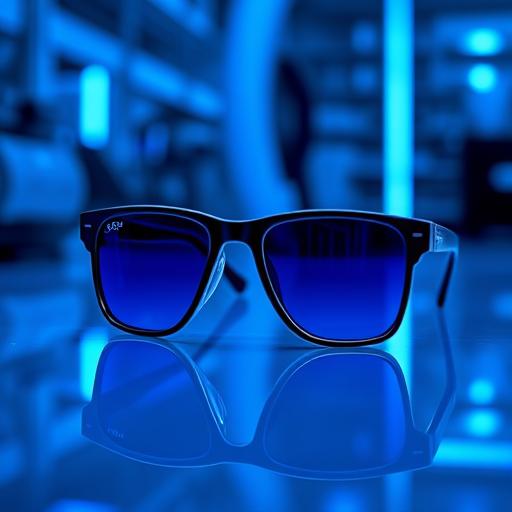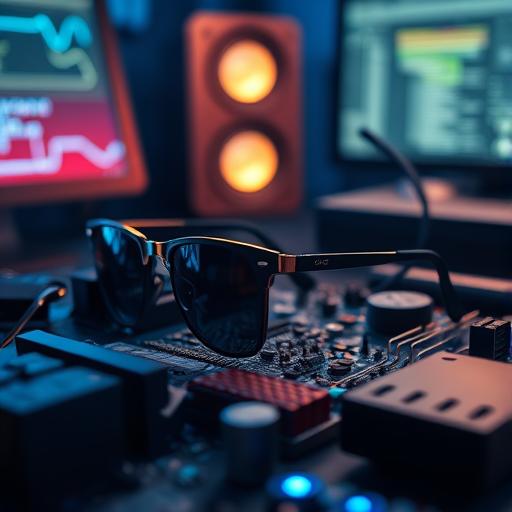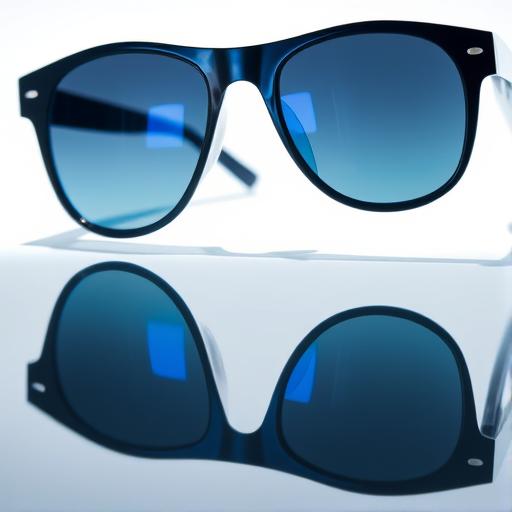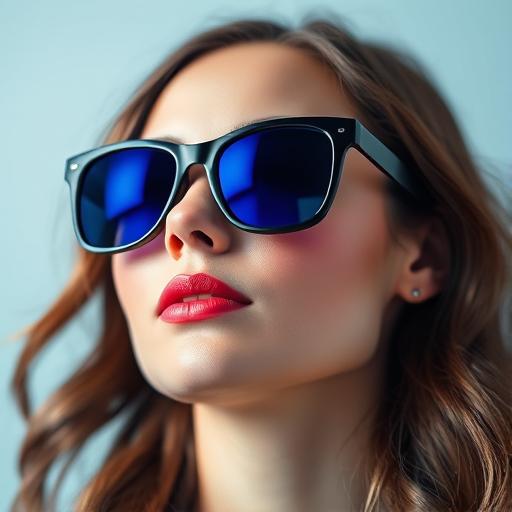Do Sunglasses Block Blue Light

In the digital age, we’re constantly exposed to blue light—from the sun’s rays to our smartphones, laptops, and LED lights. While many people turn to sunglasses for protection, the question remains: Do sunglasses effectively block blue light? As awareness of blue light’s impact on eye health and sleep grows, understanding how sunglasses (and other eyewear) can help is crucial. This guide explores whether sunglasses are a reliable shield against blue light and how to choose the best pair for protection.
Step-by-Step Process
Understand Blue Light
Identify blue light sources like screens and sunlight.
Check Sunglasses Specs
Look for blue light blocking labels or coatings.
Verify Lens Material
Ensure lenses are treated with blue light filtering technology.
Test Effectiveness
Use a blue light meter to measure light transmission.
Choose Proper Fit
Ensure sunglasses fit well for optimal protection.
Process infographic for Do Sunglasses Block Blue Light
What is Blue Light and Why Does It Matter?
The Science Behind Blue Light
Blue light is a high-energy, short-wavelength light in the visible spectrum. It’s naturally emitted by the sun and also by digital screens, fluorescent lights, and LEDs. While blue light has benefits—like boosting alertness and mood—excessive exposure, especially from screens, can lead to digital eye strain, sleep disruptions, and even potential long-term retinal damage.
Sources of Blue Light
Blue light comes from two main sources: natural and artificial. The sun is the primary natural source, while artificial sources include smartphones, computers, tablets, TVs, and energy-efficient lighting. Unlike UV rays, which are filtered by the atmosphere, blue light penetrates more deeply, reaching the retina.

Effects on Health
While blue light helps regulate circadian rhythms during the day, excessive exposure—especially at night—can disrupt sleep patterns. Prolonged screen use can cause eye strain, headaches, and blurred vision. Some studies suggest long-term exposure may contribute to retinal damage, though more research is needed.
How Do Sunglasses Work?
Basic Function of Sunglasses
Traditional sunglasses are designed to protect eyes from ultraviolet (UV) rays and reduce glare, which can cause discomfort and temporary vision impairment. However, their primary focus is not on blue light filtration.
Types of Lens Coatings
Sunglasses often feature coatings like polarization, which reduces glare from reflective surfaces, and anti-reflective coatings, which minimize internal lens reflections. While these enhance comfort, they don’t necessarily block blue light.
Lens Materials and Colors
The material and tint of sunglasses impact how light is filtered. Polycarbonate and polarized lenses are common, but lens color plays a key role in blue light protection. Dark tints reduce brightness but may not filter specific wavelengths effectively.
Can Sunglasses Block Blue Light?
The Difference Between UV and Blue Light
UV rays and blue light are distinct. UV light is invisible and harmful, while blue light is visible but can still cause strain. Standard sunglasses block UV rays but may not target blue light unless specifically designed to do so.

Do Sunglasses Block Blue Light?
Most conventional sunglasses are not optimized for blue light protection. Their primary function is UV filtration, not selective wavelength blocking. However, some high-quality sunglasses offer blue light filtering as an additional feature.
Specialized Blue Light-Blocking Sunglasses
Certain sunglasses are engineered to block blue light, often using yellow, amber, or brown tints. These lenses filter out a portion of blue light while maintaining clear vision. Brands like Ray-Ban and Oakley offer models with blue light protection.
Effectiveness of Tinted Lenses
Lens color influences blue light filtration:
- Yellow/Amber: Blocks blue light effectively, enhancing contrast.
- Brown: Reduces glare and filters some blue light.
- Gray/Green: Neutral tints that don’t block blue light but reduce overall brightness.
Choosing the Right Sunglasses for Blue Light Protection
Look for Blue Light-Blocking Labels
When shopping, check for labels like “blue light protection” or “blue light filtering.” Manufacturers may also provide specs on the percentage of blue light blocked (e.g., 20-50%).
Lens Color and Material Recommendations
For blue light protection, prioritize:
- Yellow or amber tints: Best for filtering blue light.
- Polarized lenses: Reduce glare but may not block blue light unless specified.
- Polycarbonate or CR-39 materials: Durable and often used in blue light lenses.
Additional Features to Consider
Beyond blue light protection, opt for:
- UV400 protection (blocks 99-100% of UV rays).
- Anti-reflective coatings to minimize glare.
- Comfortable, wrap-around frames for better coverage.
Budget vs. Quality
High-quality blue light-blocking sunglasses range from $50 to $200. While budget options exist, ensure they meet blue light and UV protection standards. Investing in certified lenses is worth the long-term eye health benefits.
Alternatives to Sunglasses for Blue Light Protection
Blue Light-Blocking Glasses
For screen use, specialized blue light glasses (often clear-lensed) are more practical than sunglasses. They filter blue light without darkening vision.
Screen Filters and Apps
Software like f.lux or Night Shift adjusts screen color temperatures to reduce blue light emission. Physical screen filters also help.
Lifestyle Changes
Limit screen time, follow the 20-20-20 rule (every 20 minutes, look 20 feet away for 20 seconds), and use warm lighting in the evenings to minimize blue light exposure.
Conclusion
While standard sunglasses primarily protect against UV rays, some models offer blue light filtration—especially those with yellow or amber tints. For outdoor use, prioritize lenses labeled for blue light and UV protection. For screen time, consider dedicated blue light glasses or screen filters. Protecting your eyes from blue light is essential in today’s tech-driven world, so choose eyewear that meets your specific needs.

Ready to shield your eyes? Explore blue light-blocking sunglasses or glasses tailored for your lifestyle and enjoy clearer, more comfortable vision.
FAQ Section
Do all sunglasses block blue light?
No, standard sunglasses are designed primarily for UV protection, not blue light.
What color lenses are best for blocking blue light?
Yellow, amber, and brown tints are most effective for filtering blue light.
Can I use sunglasses to protect my eyes from screen blue light?
While sunglasses can help, specialized blue light-blocking glasses are better suited for screen use.
How do I know if my sunglasses block blue light?
Look for labels or certifications indicating blue light protection, or consult the manufacturer.
Are blue light-blocking sunglasses worth it?
Yes, especially if you spend significant time outdoors or in environments with high blue light exposure.
